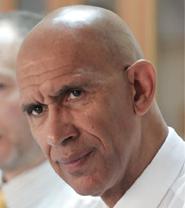 Written by:
Written by:
John Mark Williams
CEO
The Institute of Leadership & Management
In his 2018 speech at Davos, Canadian Premier Justin Trudeau said: “The pace of change has never been this fast, yet it will never be this slow again” and we are just beginning to understand how fast change happens.
Complexity – political, economic, social, technological, environmental – is overwhelming the ability of any individual to make decisions fast enough to keep up. No leader can afford to rely solely on their own knowledge, skills or experience for the innovation needed to deliver value and growth.
The new complexity of the world demands continual innovation by motivated, engaged teams – and that needs engaging leadership. Whilst the concept of engaging leadership has been around for 20 years, derived from academic research, it needs a context in which it can flourish. That context is now. The recognition that the world is more volatile, uncertain, and ambiguous, combined with a growing understanding of the need for inclusion, have paved the way for leadership engagement. And we are not there yet.
The many definitions of engaging leadership have one thing in common – they say what it is not. It is not detached. It is not disconnected. It is not separate from the organisation the leader inhabits. Engaging leadership operates within the team, connecting and associating, cultivating, and supporting hopes and ambitions, assuaging fears and concerns by keeping the team focused on the organisation’s purpose and vision – as outlined by Engage for Success and their four Enablers.
The confidence and competence to do this effectively doesn’t come naturally. It is drawn partly from experience, as ‘the things we need to learn before we can do them, we learn by doing them’. It also comes from underlying values that embody the future the organisation wants to achieve. Yet there is a third component – the most important of all. Knowing what is right and believing what is right are not enough – engaging leadership needs to exhibit a unique set of behaviours.
Engaged leaders are accountable, where necessary to drive progress; they maintain focus and positive energy; they facilitate and reward connections and sharing; they empower and develop others; and they are exemplars of openness and authenticity.
The outcome of engaging leadership is collective energy, collective commitment, and collective innovation – a competitive advantage for any organisation, whether focused on profitability or well-being for the public good. Justin Trudeau raised the bar for leadership, highlighting the demand factor that leaders must meet, in a world where 80% of workers around the world feel disengaged. It is time for us to demand engagement from our political and business leadership figures.
As writer and poet Maya Angelou said, ‘Do the best you can until you know better. Then do better’. We know better now – it is time for engaging leadership to become the default behaviour in our organisations.













